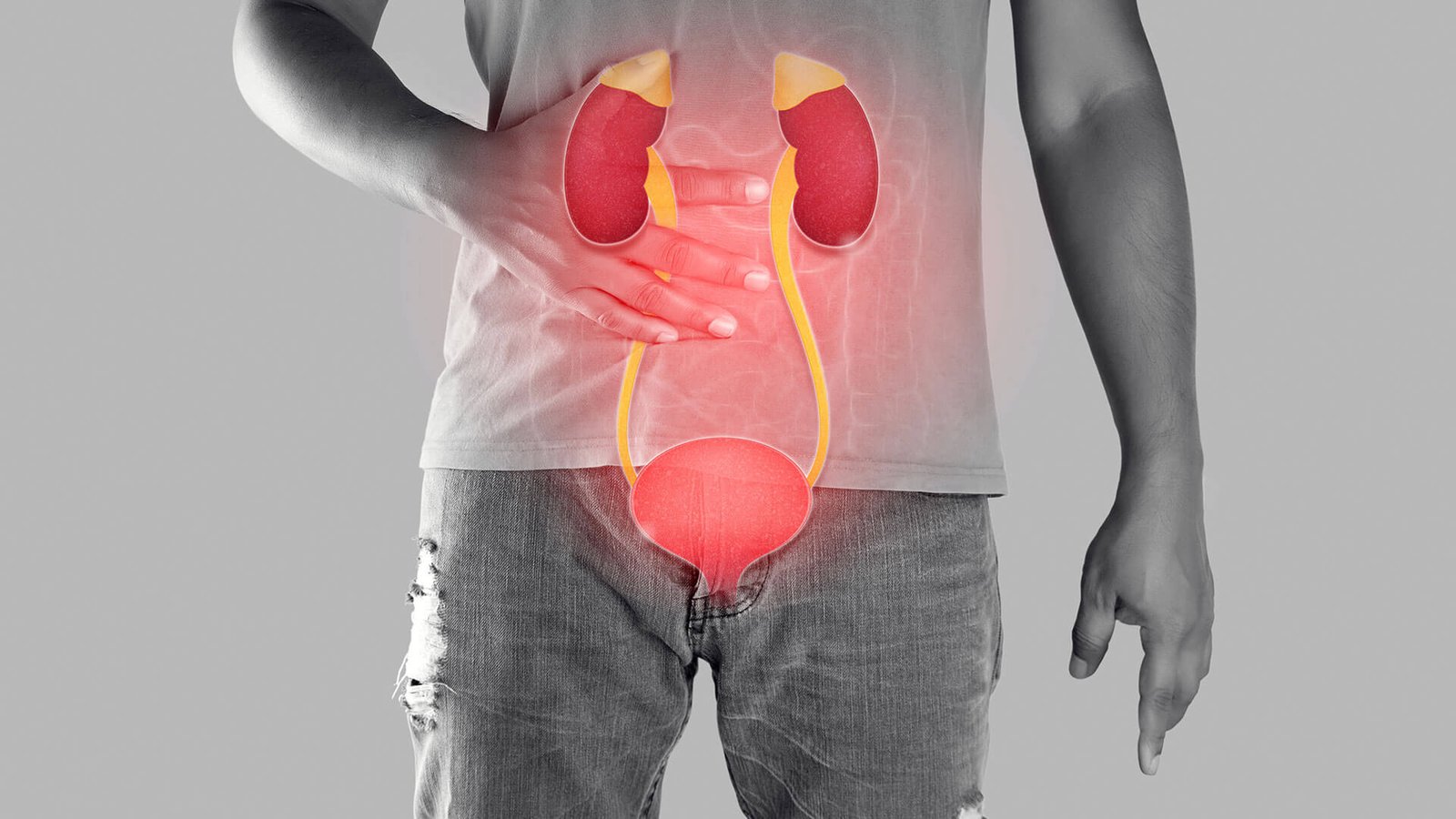Unlocking the Mystery: Does UTI Cause Bloating? 1″ explores the link between UTIs and abdominal discomfort, offering insights for those seeking answers.
What is an infection of the urinary tract (UTI)?
You are aware of how uncomfortable urinary tract infections (UTIs) can be if you have ever experienced one. All too familiar are the burning sensation, the lower abdomen pain, and the frequent trips to the bathroom. What about bloating, though? Is there any chance that the unpleasant swelling in your abdomen is related to your UTI? Let’s explore this subject in more detail and look for any connections.
Any illness that affects the kidneys, ureters, bladder, or urethra is referred to as a urinary tract infection (UTI). The bladder and urethra, which comprise the lower urinary system, are the sites of most infections. They are frequently brought on by germs, and you run a higher risk if you have underlying medical issues, sexual activity, or inadequate cleanliness.
How bloating could be caused by a UTI
Unlocking the Mystery: Does UTI Cause Bloating? 1 Any infection that affects the kidneys, ureters (tubes that connect the kidneys and the bladder), the bladder itself, or the urethra (the tube that exits the bladder through which we urinate) is referred to as a urinary tract infection (UTI)
Because women’s urethras are shorter than men’s, there is less space between the bladder and the external environment, which is home to bacteria, making them more susceptible to UTIs. Most cases of UTI bloating involve the lower urinary tract, which includes the bladder and urethra.
The most common way that a UTI is contracted is through the movement of bacteria from the anus to the urethra, either when wiping after going to the toilet or during sexual intercourse. Taking care during each of these activities can help to prevent the transfer of bacteria, which may then have the opportunity to overgrow.
Typical UTI symptoms include:
recurring urination
a feeling of burning when urinating
pee that smells strongly or is murky
ache in the lower abdomen
Gratitude bloating
The sensation of fullness and swelling in the abdomen is called bloating. Unlocking the Mystery: Does UTI Cause Bloating? 1 Hormonal fluctuations, nutrition, and digestive problems are just a few of the causes. Bloating is characterized by feelings of fullness, gas, and swelling in the abdomen.

Examining the Relationship: Is Bloating Caused by UTIs?
According to a medical study, bloating and UTIs may be related. How to do it is as follows:
Inflammation and swelling:
Bloating may result from UTI-induced inflammation. Infected parts of the body frequently expand as a result of the illness.
Immune Response:
Bloating may be a result of the immune system’s response to a urinary tract infection.
Gut Health and Antibiotics:
The balance of beneficial bacteria in your stomach can occasionally be upset by antibiotics used to treat UTIs, which can cause bloating and other digestive problems.
Unlocking the Mystery: Does UTI Cause Bloating? 1: How to Identify UTI Symptoms
Bloating
Pain or burning upon urination
The feeling of wanting to urinate constantly
Cloudy, bloody, or strong-smelling urine
Fever
Diarrhea
Nausea
Muscle aches
enduring need to go to the bathroom
for murky or offensive-smelling pee
Chills or fever
Impact on the Gastrointestinal
Some people report experiencing nausea and vomiting in addition to bloating.
Speak with a Physician: Consult a doctor right away if you think you may have a UTI.
Additional Things to Think About
The most common way that a UTI is contracted is through the movement of bacteria from the anus to the urethra, either when wiping after going to the toilet or during sexual intercourse. Unlocking the Mystery: Does UTI Cause Bloating? 1 It’s crucial to remember that bloating can have a variety of causes, and identifying the precise cause would require a thorough medical examination. Similar symptoms can also be caused by other illnesses, such as pelvic inflammatory disease (PID) or irritable bowel syndrome (IBS).”
Therapy and Administration
- Antibiotics, fluid retention, and pain management are usually the three mainstays of UTI treatment. Think about making dietary adjustments, using over-the-counter drugs, and using natural therapies like probiotics and herbal teas to treat bloating. Always consult a doctor if symptoms don’t go away.
- Preventive Advice
- To avoid urinary tract infections:
- Remain hydrated.
- Maintain proper hygiene.
- Adhere to safe sexual behavior.
- To prevent bloating:
- Continue to follow a healthy diet.
- Engage in regular exercise
- Control your tension
Summary
Bloating can happen in some UTI instances, although the main symptoms are usually connected with abdominal pain and frequent urination. The immune system’s reaction, inflammation, or the effects of antibiotics on gut health could all be to blame for this. Being aware of the possible connection between bloating and UTIs will help you better control your symptoms.
FAQs
- Is bloating a result of a UTI?
Indeed, inflammation, an immunological reaction, or the impact of drugs on gut health can all contribute to bloating after a UTI.
- What signs and symptoms are typical for a UTI?
Lower abdomen pain, hazy or strongly scented urine, burning when peeing, and frequent urination are common symptoms.
- How should I handle the bloating brought on by a UTI?
Dietary adjustments, over-the-counter drugs, and natural therapies like probiotics and herbal teas can all be used to treat bloating. See your healthcare provider for individual guidance.
- How may UTIs be prevented best?
Among the most effective ways to avoid UTIs are to drink enough water, maintain proper cleanliness, and engage in safe sexual behavior.
- When should I visit a physician if I’m bloated?
See a doctor for a thorough assessment if your bloating is severe, ongoing, or accompanied by other worrisome symptoms.










